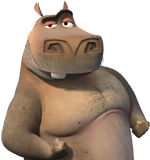By Dennis V. Hickey
January 6, 2008
Taiwan and mainland China have been separated since Chiang Kai-shek's Kuomintang (KMT) government retreated to Taiwan in 1949. Taiwan is now a multiparty democracy led by President Chen Shui-bian of the Democratic Progressive Party (DPP), a party that favors "self-determination" for the island.
On Oct. 15, Hu Jintao, China's president, opened the 17th Chinese Communist Party (CCP) Congress by calling for a "peace agreement" with Taiwan. That move represents the latest in a series of "soft measures" intended to court key constituencies within Taiwanese society. Some suspect these changes are superficial, given that China has accelerated the campaign to isolate Taiwan in the global community and has deployed almost 1,000 ballistic missiles directly opposite the island. But others disagree.
In a recent interview, excerpted below, President Chen discussed China's policy toward Taiwan.
Q Some say China's policies toward Taiwan are changing. What is your interpretation?
A The nature of the CCP and its basic policy toward Taiwan never changes. It has one objective -- to annex Taiwan. The strategies have one goal -- to downgrade, localize, marginalize, undermine and delegitimize Taiwan's government and sovereignty.
Some say China's "soft policies" are getting "softer," while its "hard policies" are getting "harder." The real point is that "the hard is getting harder." We see the soft policies as sugar-coated poison. Many are deceived by this superficial change. China wants to annex Taiwan no matter which party is in power in Taipei. The only difference is that some Chinese leaders are more straightforward, while others know how to disguise their ambitions.
Q Why is China deploying missiles opposite Taiwan and squeezing Taiwan internationally while calling for a peace treaty?
A If you look at Hu Jintao, he is a formidable and sharp person. We need to be very careful and vigilant. Hu has called for a peace treaty with Taiwan, so people ... overlook the preconditions set for this treaty, which is "one China." They want to annex Taiwan and turn it into a province.
After China passed its ... "anti-secession law" in 2005 to lay a legal foundation for an invasion of Taiwan, the international community reacted negatively. So they came up with a strategy to invite Taiwan opposition party leaders to visit China. These politicians have accepted the "one-China principle." They are helping China.
Q Why wouldn't a return to the "one-China principle" lead to peace with China?
A Past presidents of Taiwan supported the idea of eventual unification with China. Did this lead to peace? In the 1950s, [Chinese leaders] threatened to "wash Taiwan with blood." In the 1990s, they fired missiles at Taiwan. China's threats and diplomatic oppression of Taiwan did not stop because the KMT accepted the one-China principle and the goal of ultimate unification.
Q Taiwan's opposition Chinese Nationalist Party, known as the KMT, is reaching out to the Chinese Communist Party, and leaders of the two parties have met. Any comment?
A This is just part of China's "united front" tactics and divide-and-conquer strategy. The KMT has not learned any lessons from the past. When they are of no use or value anymore, the CCP will throw them away like rubbish.
Q Were you surprised by President Hu's call for peace?
A No, it's just a strategy to deceive our people and foreign countries. Taiwan and China are two independent countries. Neither exercises jurisdiction over the other. Taiwan is Taiwan. China is China. There are two countries, one on each side of the Taiwan Strait. No matter how fierce China's united-front tactics may become, we will not accept the one-China principle or that unification is the only option for Taiwan. If Hu Jintao abandons the one-China principle, I will be surprised. If China gives up its one-party dictatorship, renounces the use of force against Taiwan and removes the 988 missiles deployed opposite Taiwan, then I will be truly surprised.
Q Are chances for peace between Taiwan and China increasing or decreasing?
A During my two terms as president, we've maintained peace in the Taiwan Strait, although my political opponents predicted war if I was elected. We have been vigilant, cautious and careful. We are proud of this. China's threats will increase in the future. Our next president must have great political wisdom and place our national interests first.
Q How should the U.S. promote peace and stability between China and Taiwan?
A Washington should support Taiwan's democratic development, promote official talks between the governments of China and Taiwan, review the outdated one-China policy and abide by the Taiwan Relations Act -- the law that governs relations between our countries. It should sell Taiwan defensive weapons and otherwise help this country defend itself.
When we hold our referendum on Taiwan's participation in the UN [in March], we hope the U.S. will have a positive attitude toward it. The reason Taiwan enjoys its democracy today is because of the encouragement and support of the U.S. government and American people. We want to make the voice of the Taiwanese people heard throughout the world and to become a formal member of international organizations.
----------
Dennis Hickey is director of the graduate program in international affairs at Missouri State University.
Tuesday, January 08, 2008
China's "peace" is sugar-coated poison (Chicago Tribune)
I saw the link to this article from Michael Turton's blog, The View from Taiwan. Thanks, Michael!
Labels:
Taiwan Politics
Subscribe to:
Post Comments (Atom)





No comments:
Post a Comment